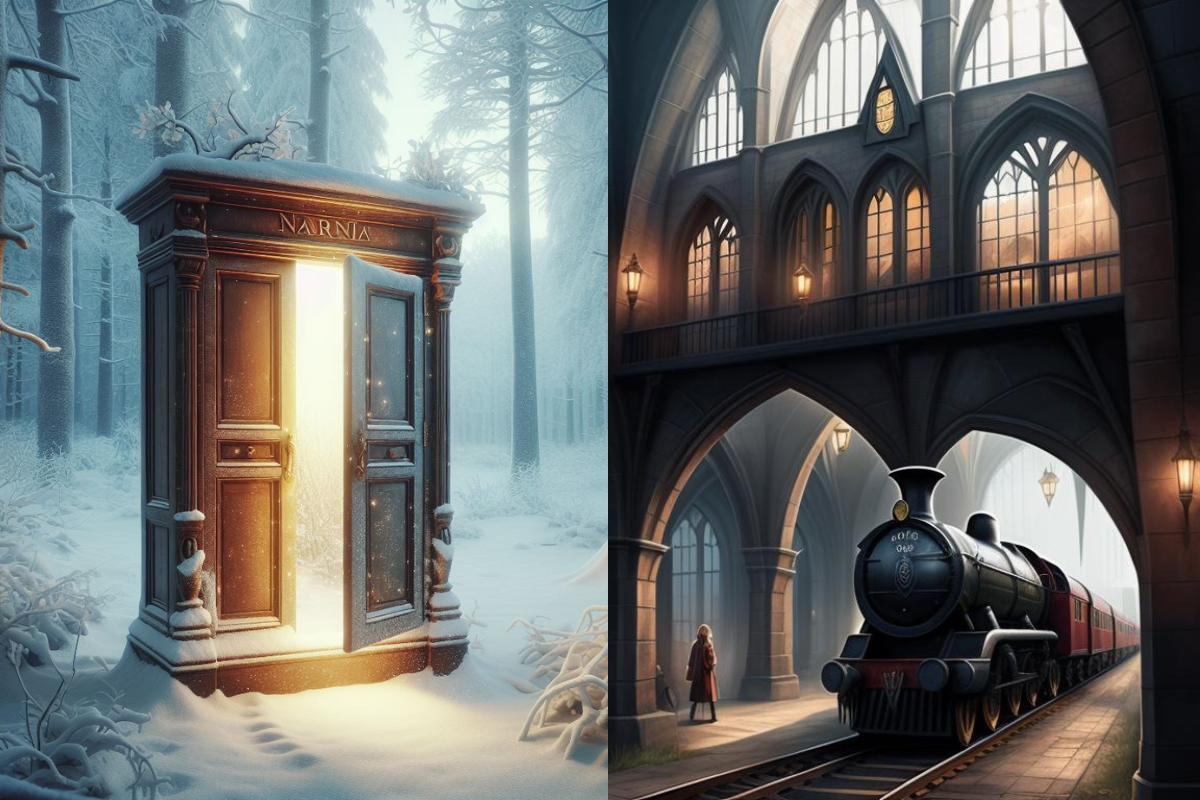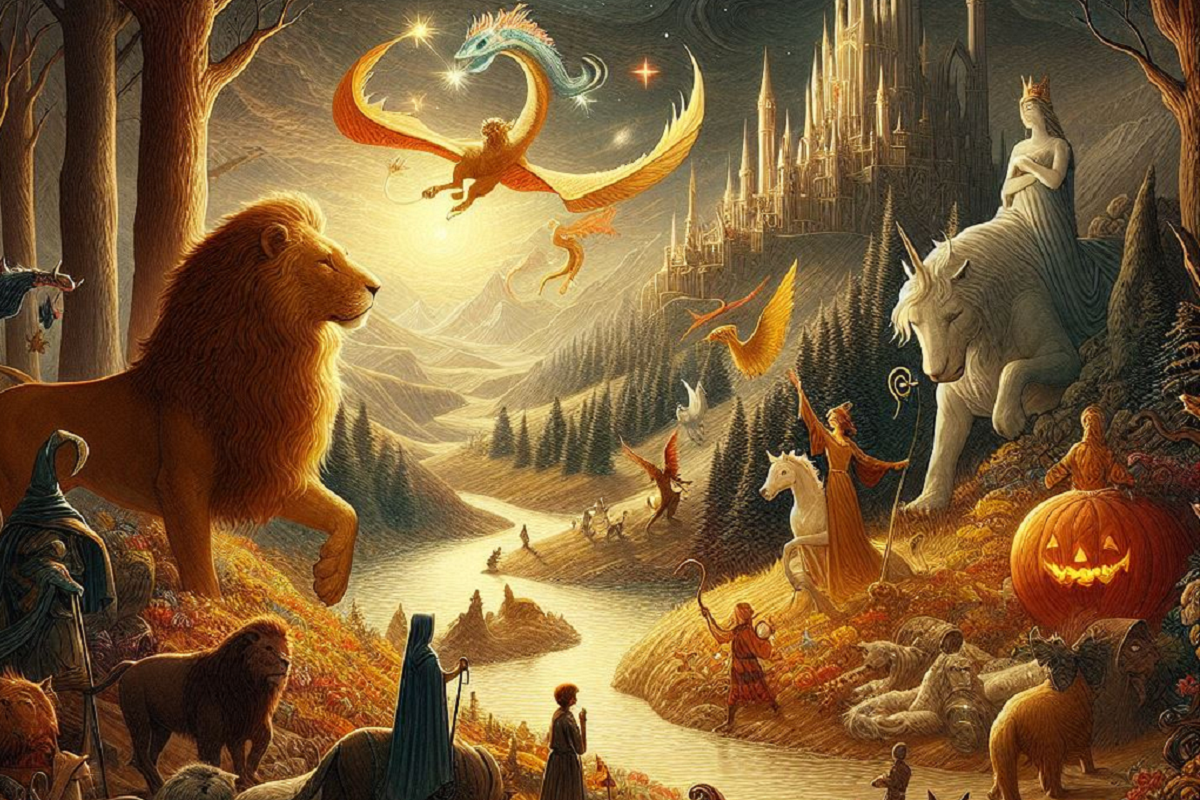Frankenstein by Mary Shelley is a timeless classic filled with themes of scientific ambition, societal rejection, and the adverse effects of playing god. Published in 1818, it narrates the story of Victor Frankenstein, a young and ambitious scientist, and his invention, a nameless and monstrous creature. Keep exploring to read the life of Frankenstein by Mary Shelley through the summary below.

Frankenstein by Mary Shelley Summary
The novel starts with letters exchanged between Robert Walton and his sister Margaret. These correspondences chronicle Walton’s isolation and longing for companionship during his Arctic exploration. During the expedition, Walton and his crew come across a man on a sled stranded amidst the icy terrain. They embark on a daring rescue mission to save him. The saved man is Victor Frankenstein, who then proceeds to recount his life story to Walton.
Victor Frankenstein was born into a rich Swiss family and grew up loved. He was curious from a young age. He was very interested in nature studies, so he decided to go to the University of Ingolstadt. There, Victor’s studies in chemistry and alchemy consumed him deeply. Motivated by scientific renown, he aimed to defy death. He fixated on creating life from lifeless matter.
Victor makes a scary monster by putting together body parts. He uses electricity to bring it to life. Seeing the terrible result of his creation makes him feel deep disgust and sorrow. Victor leaves his creation behind, trying to forget what he made. This starts a chain of sad events that change the story.
The lonely creature walks in the countryside, seeking shelter and friends. People fear and hate him. By watching a family all by themselves, the creature learns to talk and read. But, they too eventually reject him. Feeling extremely lonely, the creature asks Victor to make him a female companion. He promises not to hurt people anymore if Victor fulfills his wish. Initially, Victor agreed. Later, he changed his mind out of fear of the bad results of making another monster.
Enraged and seeking revenge, the creature starts a relentless terror campaign against Victor. The cruel attack killed his loved ones and wrongly blamed Victor for the murders. Consumed by guilt and sorrow, Victor’s health deteriorates. He pursues the creature across Europe and into the Arctic.
As Victor tells his story to Walton, he falls sicker and eventually dies on Walton’s ship. The creature emerges. Consumed by grief, burdened by profound sorrow and isolation. He tells Walton that he plans to burn himself in the Arctic because he feels unwanted in this world.
The novel ends with Walton’s decision to turn his ship around and return to England. He thinks about the sad tale he heard and the results of too much ambition in science. He chooses to put his crew’s safety first, ahead of seeking knowledge.
Characters of Frankenstein by Mary Shelley
Frankenstein by Mary Shelley showcases several key characters whose roles are pivotal in the development of the novel.
1. Victor Frankenstein: He is the main character of the novel. He is a young and ambitious scientist. He becomes fixated on creating life from lifeless matter. However, his reckless pursuit of knowledge made him abandon the creature. This resulted in devastating consequences.
2. The Creature (referred to as Frankenstein’s Monster): It is the outcome of an experiment conducted by Victor Frankenstein. It gradually evolves into an intelligent and articulate being burdened with immense loneliness. The urge for revenge against his creator grows due to feelings of abandonment.
3. Elizabeth Lavenza: Victor’s adoptive sister and fiancée, Elizabeth, embodies qualities of kindness and love. She serves as a symbol of innocence and virtue but tragically becomes the creature’s target for revenge. This unfortunate circumstance leads to dire consequences for both Elizabeth and Victor.
4. Henry Clerval: From their childhood days, Victor found a true companion in Henry. Filled with care and compassion, Henry stands by Victor’s side through all the challenges and hardships. He embodies Victor’s conscience, reminding him of moral and ethical values.
5. Robert Walton: The explorer and writer in the novel serves as the frame narrator. He embarks on an Arctic expedition. He shares his personal experiences and the tale of Victor Frankenstein with his sister, Margaret. Readers gain an outsider’s viewpoint that sheds light on the story’s events through Walton’s character.
6. Alphonse Frankenstein: He is Victor’s father who is caring and supportive and possesses a deep concern for his son’s well-being. He closely observes Victor’s declining health and growing obsession with scientific endeavors. Alphonse remains by his side throughout Victor’s journey, providing unwavering support and love.
7. Justine Moritz: She is the maid of the Frankenstein family. She was wrongly accused and executed for the murder of William Frankenstein, Victor’s younger brother. Justine’s tragic fate illuminates the devastating consequences of Victor’s actions.
8. William Frankenstein: Victor’s younger brother falls prey to the creature, becoming one of its victims. The murder of William burdens Victor with a profound sense of guilt and responsibility.
The characters in Frankenstein play significant roles in shaping the novel’s plot. Their choices and actions explore themes of ambition, morality, isolation, and the repercussions of scientific exploration. Each character contributes to the intricate and captivating narrative of this literary masterpiece by Mary Shelley.
Themes of Frankenstein by Mary Shelley
The summary of Frankenstein by Mary Shelley itself delves into a multitude of intricate themes that continue to resonate with contemporary readers. The novel explores various prominent themes, each offering deep insights and lasting relevance.
1. Ambition and Hubris: In Mary Shelley’s Frankenstein, one key theme is the danger of uncontrolled scientific ambition. Victor’s unrelenting desire to create life and assume the role of a deity. This leads to catastrophic consequences for both himself and those in his proximity. This novel is a cautionary tale. It highlights the moral duties that come with scientific breakthroughs.
2. Isolation and Alienation: Both Victor and the creature undergo profound isolation and alienation. Victor dedicates himself to his experiments. He distances himself from his loved ones, resulting in solitary confinement. On the other hand, the creature is condemned by society from the moment of its creation. This leads to overwhelming loneliness and an eventual quest for vengeance.
3. Nature vs. Nurture: The novel explores the fundamental nature of individuals. It possesses inquiries about their inherent inclinations towards goodness or evilness. It also delves into the influence of external factors such as environment and interpersonal interactions on one’s actions. The initial innocence of the creature becomes tainted as society subjects him to cruelty and rejection.
4. Responsibility and Consequences: Frankenstein delves into the concept that every action carries repercussions. This emphasizes the cruciality for individuals to assume accountability for their creations. Victor’s failure to fulfill his responsibilities as a creator ensues in tragedy. This action highlights the moral and ethical predicaments inherent in scientific exploration.
5. The Sublime and the Gothic: The novel intertwines the sublime and gothic elements. These elements highlight nature’s awe-inspiring power and the unsettling aspects of the unknown. These components contribute to a suspenseful and horrifying atmosphere within the story.
6. The Pursuit of Knowledge: The pursuit of knowledge and the sacrifices made for scientific discovery take center stage. Victor has an unquenchable thirst for knowledge. It drives him to push the boundaries of science. This ambition ultimately leads to his downfall. This theme comes up again and again. It explores deep questions about the ethics of gaining knowledge. It also looks at the limits of human understanding.
7. Parent-Child Relationships: The novel looks at parent-child relationships. It focuses on Victor’s interactions with his parents and his creation of the creature. The creature is a distorted symbol of parenthood. These portrayals underscore the intricate nature and obligations of familial connections.
8. Revenge: The novel revolves around the creature’s relentless pursuit of vengeance against Victor and society. This burning desire for retribution stems from the deep rejection and mistreatment he endures. The central theme here highlights how revenge holds immense power, capable of fueling a cycle of violence with devastating consequences.
9. Ethics in Science: The novel raises thought-provoking ethical dilemmas. They are about the bounds of experiments and the moral impacts of breakthroughs. It challenges readers to dig into the duties of scientists and researchers. They have these duties for their creations and for society. It urges a thoughtful look at the ethics in science.
10. Humanity and Monstrosity: Frankenstein prompts readers to ponder what makes a person human. It also asks what makes a thing a monster. Despite its looks, the creature shows many human emotions, desires, and suffering. It challenges common ideas about morality and wickedness.
The themes in the summary of Mary Shelley’s Frankenstein contribute much to the novel’s ongoing relevance. They provoke thoughtful thought. They stimulate discussions about science, morality, and the complexities of humans. Through her exploration of these themes, Shelley has solidified Frankenstein as a timeless work and prompts deep reflection.
Recommended: Naturalism in Literature | Characteristics and Authors
Quotes from Frankenstein by Mary Shelley
After reading Mary Shelley’s Frankenstein summary, it’s time to dig into a few popular quotes from the book, reflecting the novel’s profound themes and multi-dimensional characters.
- “I had worked hard for nearly two years, for the sole purpose of infusing life into an inanimate body… but now that I had finished, the beauty of the dream vanished, and breathless horror and disgust filled my heart.” – Victor Frankenstein (reflects on his creation and its aftermath)
- “Beware; for I am fearless, and therefore powerful.” – The creature (expressing his own power and determination after facing rejection)
- “The world was to me a secret which I desired to divine.” – Victor Frankenstein (curiosity and ambition to uncover the secrets of life through science)
- “I, the miserable and the abandoned, am an abortion, to be spurned at, and kicked, and trampled on.” – The creature (lamenting his own existence and the treatment he receives from humans)
- “I do know that for the sympathy of one living being, I would make peace with all. I have love in me the likes of which you can scarcely imagine and rage the likes of which you would not believe.” – The creature (expressing his longing for companionship and the depth of his emotions)
- “Nothing is so painful to the human mind as a great and sudden change.” – Victor Frankenstein (reflecting on the profound impact of his scientific experiments)
- “If I cannot inspire love, I will cause fear!” – The creature (vowing to seek revenge on Victor for his suffering)
- “I am malicious because I am miserable.” – The creature (explaning his actions, highlighting the link between his suffering and his actions)
- “Learn from me, if not by my precepts, at least by my example, how dangerous is the acquirement of knowledge and how much happier that man is who believes his native town to be the world, than he who aspires to become greater than his nature will allow.” – Victor Frankenstein (warning about the consequences of unchecked ambition)
- “Seek happiness in tranquility and avoid ambition, even if it be only the apparently innocent one of distinguishing yourself in science and discoveries.” – Victor Frankenstein (advicing to Walton, reflecting on his own experiences)
These quotes capture the core essence of Frankenstein, exploring profound moral and philosophical inquiries regarding science, ambition, and the human condition.
What does Frankenstein look like in the Book? How is Frankenstein Described in the Book?
Throughout Mary Shelley’s novel Frankenstein, the character of Victor Frankenstein is depicted in various ways. The novel offers multiple descriptions and characteristics that shed light on Victor Frankenstein’s persona:
1. Physically: Victor’s physical appearance receives limited attention in the novel, but it is noted that he possesses a robust and fit physique. This strength enables him to conduct his experiments and embark on demanding voyages.
2. Intellectually: Victor is portrayed as highly intelligent and curious from a young age. He has a deep passion for science, particularly natural philosophy (what we now call science), and is determined to unlock the secrets of life through his experiments.
3. Ambitious: Victor Frankenstein possesses a defining characteristic: his relentless ambition. Motivated by the desire to break scientific boundaries, he endeavors to achieve what has never been done before—bringing life into existence from inanimate matter.
4. Obsessive: As Victor becomes engrossed in his experiments, his obsession with success and his desire to conquer death become all-consuming. He becomes increasingly isolated from his family and friends as he dedicates himself to his work.
5. Guilt-Ridden: After bringing the creature to life and witnessing its horrifying appearance, Victor is overwhelmed with guilt and remorse. He feels responsible for the suffering that his creation endures and is haunted by the consequences of his actions.
6. Tormented: Throughout the novel, Victor experiences torment as he grapples with the repercussions of his scientific pursuits and the consequences of creating the creature. The weight of death and despair that result from his experiments continuously haunt him.
7. Determined: Despite Victor facing horrifying circumstances, his determination to confront and halt the creature’s reign of terror drives much of the narrative’s action. He is resolute in rectifying his mistake and seeking revenge on his creation.
8. Tragic: Victor’s character embodies tragedy as his ambition and scientific curiosity ultimately lead to his own downfall and cause suffering for those around him. His story serves as a cautionary tale, warning of the perils that come with unchecked ambition and scientific hubris.
Victor Frankenstein’s character experiences significant development throughout the novel. He starts as a brilliant and ambitious young scientist. But, he transforms into a guilt-ridden and tormented individual. His journey explores themes of science, morality, and the repercussions of playing god, which makes Frankenstein a thought-provoking and timeless literary masterpiece.
The summary of Frankenstein by Mary Shelley reveals its cautionary nature, highlighting the moral and ethical dilemmas stemming from relentless scientific pursuits and the repercussions of one’s actions.
About the Author
Mary Shelley was a renowned English novelist famous for her masterpiece Frankenstein. Through her writing, she delved into profound themes such as science, morality, and the complexities of human existence. Her influential contributions to gothic and science fiction literature inspires readers across the globe.
Recommended: Artemis Fowl | Summary, Themes, and Quotes




